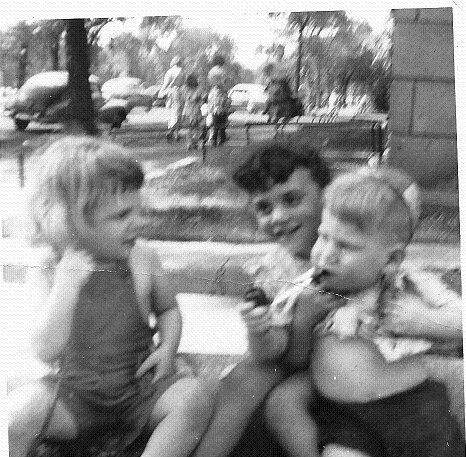Do kids listen to the radio for music anymore? Apparently less and less are doing so and broadcasters are taking notice. A new 24 hour all-news radio station is taking to the airwaves in Chicago with the call letters of WWWN-FM , 101.1 on the dial. Most recently the same spot had been WKQX, a music station. In addition, WBBM-AM in Chicago, a CBS-owned radio station, has just started duplicating their AM signal on 105.9 FM. It had until recently been WCFS, an adult contemporary music station.
CBS officials say that by adding the FM signal for their all-day newscasts, other than seasonal sports broadcasts, those in downtown, high-rise congested areas as well as far out suburbs will now be able to pick up their signal. AM stands for amplitude modulation which relies on the strength or loudness of the signal. This is why some stations covet having 50,000 clear watt signals that get picked up at night as well. There are some AM stations that are even mandated to go off the air after sundown. WGN was chartered an all clear 50,000 watt station because they were willing to air a decent amount of farm related news to the Midwest.
FM stands for frequency modulation. The ability to pick up these signals are based on the proximity, not the loudness, to the transmitter. This is why it is often easier to pick up FM radio stations than AM in areas with tall buildings. The signal strength is not interfered with as much especially if the FM transmission tower is nearby.
This jockeying for supremacy of the Chicago airwaves and changing of the guard in listener tastes brings back several memories for baby boomers listening to radio in the 1960’s. Before the Beatles showed up we used to listen to rock and roll stars like Elvis, The Beach Boys, Frankie Avalon, Fabian, Leslie Gore and many others. The music played loud and it all sounded pretty much the same. But to us the real stars were maybe the disk jockeys who fought for our attention on the various music radio outlets.
At one time or another three stations- WLS, WJJD and WCFL rocked us for loyalty and ratings numbers. Dick Biondi was king of the hill on WLS. By 1964 he was gone and returned to Chicago on arch-rival WCFL in 1967. Biondi as of most recently was still on the airwaves doing nostalgic radio, some fifty years later.
Art Roberts took the baton at WLS in the mid 1960’s and was the top dj for a while. Larry Lujack went on to super stardom first at ‘LS and then ‘CFL in the late ’60s and early ’70s.
By the late 1960’s, I didn’t care much to listen to the British rockers who inundated American culture. As I was in my late teens then, I was more interested in sports and talk on the radio to help me fall asleep.
In the morning, I’d wake up to, as did most kids, Wally Phillips on WGN radio because that’s what our mothers were listening to in the kitchen as they prepared breakfast. In my case, it was something I could not avoid. I slept in the dining room adjoining the kitchen as we only had three bedrooms and five kids- three sisters and a baby brother. I drew the short end of the stick in a stacked deck.
Wally presented a hodgepodge of news, weather, sports, talk, bits of humor, topical discussions, and a sliver of music. Until the day he retired, he was at the top of the radio Arbitron ratings.
In the early ’60s, to help me fall asleep, I’d listen to Jack Eigen on WMAQ in the Palmer House Pump Room, or was it the Chez Paree, interview celebrities passing through town. Or, if I was in a different mood, it would be good old Franklin McCormick on WGN playing his big band music and lullabies. His mellifluous cadence was enough to hypnotize anyone to sleep in 10 minutes or less.
Today some of these call letters are used on different frequencies and the station formats are a far cry from those in the 1960’s. Some, such as WMAQ and all-news WNUS have been retired. WIND is now
a conservative talk station as well as WLS. WCFL which had 1000 on the dial has given up the spot to an all sports talk station owned by ESPN. During the past twenty years, with the migration of Mexicans to Chicago, Spanish language oriented stations have developed large followings and big numbers in the ratings. Incredibly, WGN is still what it was 50 years ago, catering to sports and mostly middle-age tastes. As always , they host the Chicago Cubs games on radio and despite a few blips of post-season success, no announcer has yet to be able to boast that one can hear the World Champion Cubs on WGN. I think when it does happen, radio programs will just be transmitted over the Internet. And the announcer will be called a podcaster. Transistor radios will be shown in museum exhibits and clock radios will be thrown out when seniors sell their homes and move to assisted living facilities. But, don’t touch that dial!- or should I say website address url?
